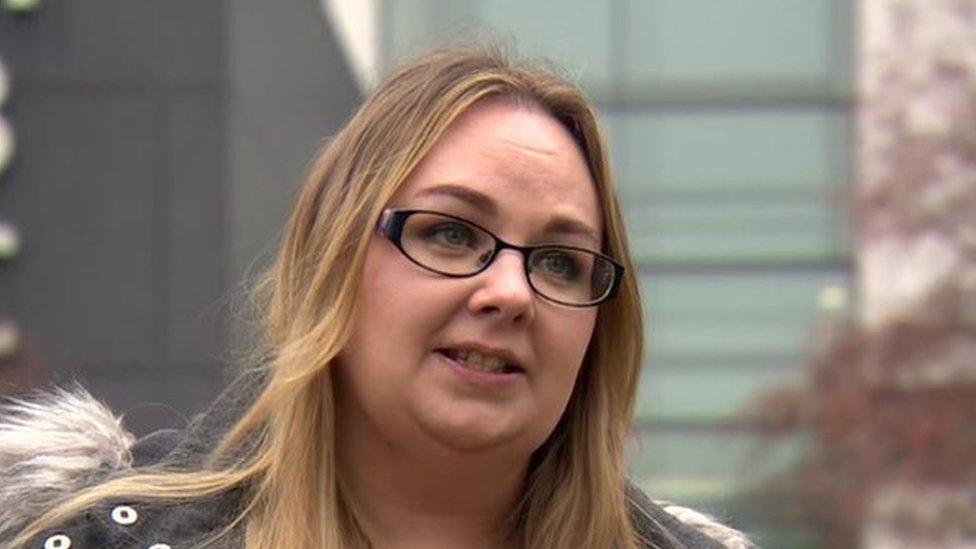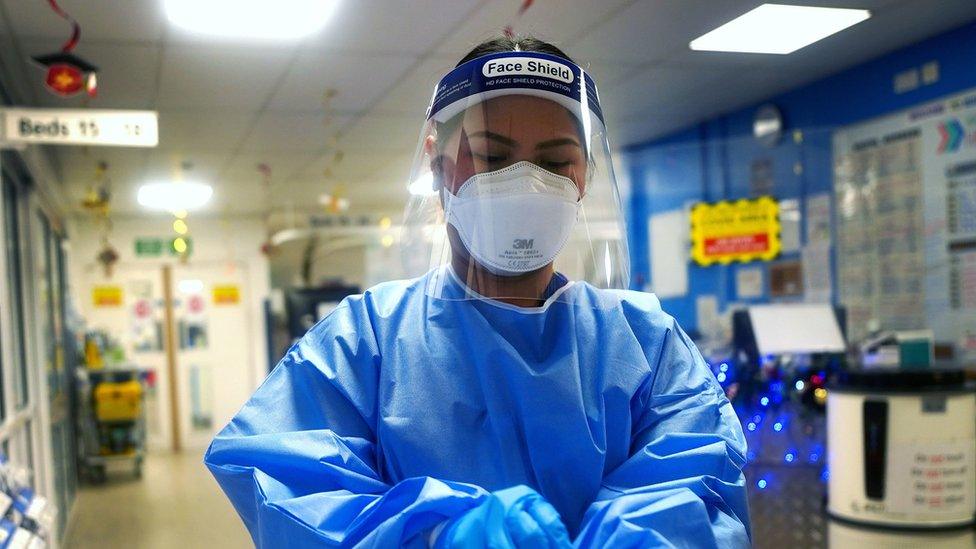Covid-19: 'Still very much in the middle of the pandemic'
- Published
- comments
As more Covid rules are eased in Northern Ireland, how close is a return to life without the virus?
There has been a warning from a health trust chief executive that Northern Ireland is still very much in the middle of the pandemic.
Against a backdrop of restrictions easing, Roisin Coulter said the impact of Covid would be felt for a long time.
She says it will take years to rebuild the health service.
A virologist has also warned that governments must learn from past mistakes and begin preparing for the next pandemic.
At present, there are almost 400 men and women in hospital with the virus - 23 of those are critically ill in intensive care units.
Speaking to BBC News NI, the woman in charge of the South Eastern Health Trust, Roisin Coulter, said the health service would be "picking up the pieces for a long period of time and the public needs to understand that".
"The impact of this pandemic hasn't even been seen yet or fully realised," she added.
Ms Coulter said as well as those on the wards with Covid - all the health trusts' mental health beds were full.
"The impact of lockdown means we are seeing severe mental health issues, then there are the hospital waiting lists," she said.
"We have an elective care plan but that will take investment and time."
'Less grim each year'
Covid restrictions are being eased across the UK.
Dr Lindsay Broadbent, a virologist at Queen's University Belfast, said Northern Ireland had "entered a new phase of the pandemic."
Speaking from inside a laboratory where scientists are testing Covid treatments, Dr Broadbent said there was still plenty of evidence of Covid around the world.
"We are still seeing scenes of what is a bad pandemic, with horrible consequences to both the health service and people's personal health," she said.

Virologist Dr Lindsay Broadbent said Northern Ireland had entered a new phase of the pandemic
Prof Tim Colbourn is a lecturer in global health systems, epidemiology and evaluation at UCL Institute for Global Health.
He agreed that the UK is not at the end of the pandemic and said Covid was going to be "around for the foreseeable future."
What is important, he said, is managing the burden of the virus and in the long term, learning to think of it alongside other health problems in the UK.
"We need a national discussion on what we should actually be aiming for in terms of the end of the pandemic and that is something that the government really has not been doing at all," Prof Colbourn said.
He also said there was a lot that could be done, including improving indoor air quality and air filtration.
"We need to invest massively in our health service which is underinvested compared to other OECD countries - we are near the bottom in terms of bed capacity and that includes the health workers to run those services, as well as social care," he said.
Dr Broadbent said what had been alarming for people had been the unknown.
"I think the conflicting advice we have received has been unnerving and a lot of people haven't known what is going on," she said.
"We need clear voices when this kind of national emergency, this global emergency, happens and we heed to make sure we are hearing the right voices with the right information."
For Prof Colbourn, while we have all had what he calls a "pretty grim time" he considers that because of the vaccines, antiviral drugs, and protection from prior infection, it will get "less grim each year".
Related topics
- Published18 January 2022

- Published19 January 2022
